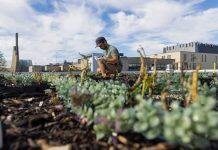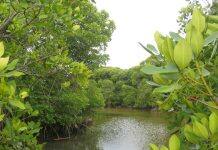Bacteria evolved to help neighbouring cells after death, new research reveals
Researchers have made the surprising discovery that a type of gut bacteria has evolved to use one of their enzymes to perform an important function after death.
Professor Olivia Wu appointed Director to NIHR national research programmes
Professor Wu, who is the William R Lindsay Chair of Health Economics, will lead the NIHR-NHS England National Research Collaboration Programme (NRCP)
Maps will show how climate change may reshape world population by 2100
Experts are developing maps which can be used to predict the impact of climate change on the distribution of earth’s population by the end of the century.
Researchers to listen to cities through optical fibre networks
Researchers from the University of Southampton and the National Oceanography Centre (NOC) will ‘listen’ to a UK city for the first time at scale through its network of optical fibre cables using a ground-breaking new technology.
What drives us to be anonymous online
University of Queensland researchers have found there are two key reasons people choose to be anonymous online – self-expression or toxic behaviour.
University of Toronto ranked world’s most sustainable university for second year in a row
The 2025 edition of the QS World University Rankings: Sustainability ranked U of T first out of more than 1,700 institutions across 95 countries
Study finds fluoride in water does not affect brain development
A University of Queensland study has found no link between exposure to water fluoridation as a young child and negative cognitive development.
Partnerships tackling sexual violence
The Mayor of West Yorkshire has urged people to step up and say “we’ve had enough of this” at an event looking at how to tackle sexual violence.
Microfluidic device reveals how tumour shapes can predict cancer aggressiveness
Researchers in the University of Toronto’s Faculty of Applied Science & Engineering have designed a microfluidic platform that can be used to predict cancer cell behaviour and aggressiveness...
Peatlands and mangroves key to reducing carbon emissions in Southeast Asia, finds international study
Conserving and restoring Southeast Asia’s carbon-rich peatlands and mangroves could mitigate more than 50 per cent of the region’s land-use carbon emissions, according to a new international study published in Nature Communications.
















































